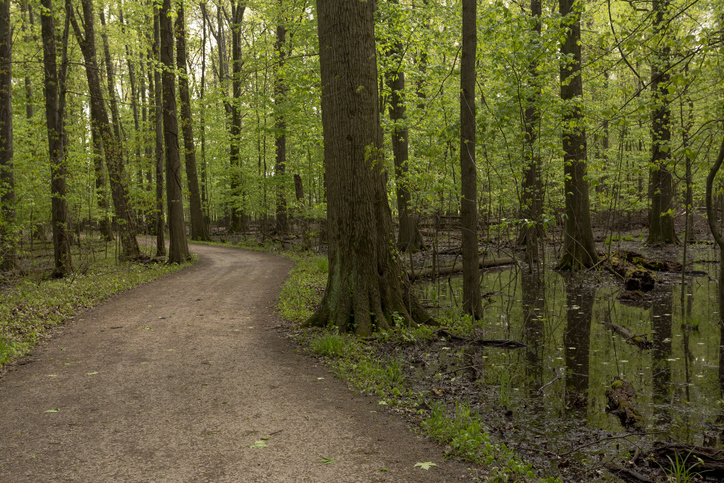Natural Gas Costs More Than You Think
April 12, 2012
Natural gas represents a greater proportion of electricity generation in Rhode Island than in any other state, accounting for about 97 percent of our electricity. Most of the natural gas we import is from production areas on the Gulf Coast and from natural gas storage sites in the Appalachian Basin.
This nonrenewable energy source receives a lot of publicity for being the cleanest of all the fossil fuels. It’s a compliment akin to being called the least-greedy banker on Wall Street. Burning natural gas rather than other fossil fuels does emit fewer harmful pollutants, but where does natural gas come from?
It is typically found deep in underground reservoirs formed by porous rock. To better access this resource, petroleum companies for the past six decades have been blasting fluids into shale rock to extract natural gas. Billions of gallons of water are used annually to crack deep rock and release this energy source.
It’s a nasty process that for generations has received far too little oversight. Natural gas may be “cleaner” than oil and coal, but this fossil fuel comes with other concerns that can’t be ignored simply because it burns clean once it’s extracted.
Hydraulic fracturing — the better-known slang term is fracking — uses a mixture of sand and water to free natural gas trapped beneath much of the United States. Fracking also relies on a brew of chemicals that the industry isn’t required to make public, because trade secrets are more important than public health. In fact, the industry is exempt from a number of federal laws.
A chemical registry advertised by the industry identifies 49 chemicals “used most often” in fracking operations across the country. The Pennsylvania Department of Environmental Protection has listed 84 chemicals used by hydraulic fracturing companies there.
Gas drilling companies have flocked in recent years to the Marcellus Shale, a massive rock formation beneath New York, Pennsylvania, Ohio and West Virginia that’s believed to hold the nation’s largest deposit of natural gas. Pennsylvania has been at the center of this Gas Rush, with thousands of fracking wells drilled during the past few years alone.
In fact, the Keystone State has become the battleground for the environmental and public health ills that are associated with fracking. Nearly 70 years after this practice began, studies to determine the impact on the environment and human health caused by hydraulic fracturing still take a backseat to the profits of multinational corporations.
The wells of residents of a northeastern Pennsylvania village have been found to be tainted by a natural gas drilling operation. The Environmental Protection Agency (EPA) has done little to help a community that can’t use much of its well water for bathing, washing dishes or drinking. Other Pennsylvania homeowners have said their wells are tainted with methane gas and toxic chemicals that are used in hydraulic fracturing.
Fumes from hydraulic fracturing wells include methane, a main greenhouse gas, and volatile organic compounds, which contribute to ground-level ozone. There have been media reports of black water from household wells contaminated by nearby fracking operations that corroded water-using appliances, and a smell of “rotten eggs and diarrhea” emanating from shower faucets has been reported by others who live near these fossil-fuel extracting wells. There are concerns that haven’t been adequately studied that fracking contaminates aquifers.
A recent study done by the Colorado School of Public Health that took three years to complete found that people who live within a half-mile of fracking sites face higher risks of cancer than the rest of the state’s population.
A study conducted by the EPA last year found groundwater near hydraulic fracturing wells in Wyoming was contaminated with high levels of contaminants associated with fracking.
Drillers risk causing serious environmental damage from fracking unless they commit to the best engineering practices, according to a task force created by U.S. Energy Secretary Steven Chu.
The U.S. Geological Survey has even linked fracking to earthquakes, and, last year, TIME magazine reported that fracking was the nation’s “biggest environmental issue.”
Just because natural gas is cheaper than oil and burns more cleanly than other fossil fuels, we Rhode Islanders, who rely on this energy source more than any other state but have no fracking operations within our borders, need to turn down our thermostats and use this resource as wisely as we can. We shouldn’t reap the benefits of cheap fuel at the expense of someone else’s drinking water.
Frank Carini is the editor of ecoRI News.
Categories
Join the Discussion
View CommentsRecent Comments
Leave a Reply
Your support keeps our reporters on the environmental beat.
Reader support is at the core of our nonprofit news model. Together, we can keep the environment in the headlines.
We use cookies to improve your experience and deliver personalized content. View Cookie Settings




Nicely done, Frank. You've called attention to an important consideration re natural gas.
The secret cost of natural gas (better known as methane) is methane released into the atmosphere.
An offshore gas well in the North Sea is out of control, and will probably remain out of control for several months, because a huge plume of natural gas is being released. Any attempt to cap the well will involve fuel-burning boats, which can set off the methane, creating a huge fueled-air bomb effect which destroys the boats. So the methane escapes unabated.
Far less visible are the dry fracking wells. When shale is fracked and the well is dry, that simply means the methane has located another fracture in the ground and millions of cubic feet of natural gas are escaping into the atmosphere. Currently, the penalty to the drilling company for overfracking and drilling a dry well is the value of the lost methane. At such a cheap price, the industry will tolerate a few dry wells. The penalty to the earth is accelerated climate change from the released methane.
Finally, natural gas pipes naturally leak methane into the atmosphere. We have a huge pipe system leaking methane from millions of little cracks in decades-old pipes, and so methane leaks are part of the game. Methane is a potent greenhouse gas.
Natural gas is supposed to be better for climate change than coal, but if we count the sum of all methane leaks, that's disputable. Natural gas (methane-burning) buses are cheaper than gasoline right now, but economics dictates that the price of any fuel will soon rise or fall to the prices of the other fuels.